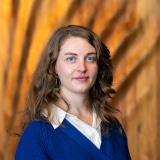Nicola Caldwell is a Digital Archivist at the National Library of New Zealand
DigiPres folk are some of the most generous and welcoming colleagues I have had the pleasure of meeting. As an early career professional from Aotearoa New Zealand, I have found a passionate and supportive network in the field of digital preservation. This sense of community is something I have felt both at home in Australasia and, more recently, during my travels in Europe. Earlier this year, I had the privilege of meeting colleagues in the UK, Ireland, and the Netherlands, thanks to the support of my managers, during some personal travel.
As a digital archivist at the National Library of New Zealand, I care for incoming unpublished born-digital heritage collections, carrying out transfer, technical appraisal and ingest. In my first two years in the role, I have learned about everything from obsolete technologies and hardware to collecting social media. I have also developed an avid interest in the preservation of complex digital objects such as games and time-based media art. On my travels, I was keen to find out how colleagues in Europe were tackling digital preservation challenges and to expand my knowledge of the tools, frameworks and processes used in the profession.
My first hurdle as a newbie was that I didn’t have any contacts in Europe to draw on. However, as I started reaching out to the community, I found that people were very willing to help. A colleague in our local Australasia Preserves and National and State Libraries Australasia (NSLA) group provided a list of contacts from a trip they had done to the UK a few years ago, and I reached out to the DPC to seek assistance in setting up some meetings and professional visits in the Netherlands. Angela Puggioni answered my request and was very generous in helping to connect me with people and coordinate visits. On this World Digital Preservation Day, I’d like to share my experience of finding community on the other side of the world!
Serendipitous timing was on my side when the DPC announced that their Unconference was going to be held in Dublin at the end of May – this coincided perfectly with the planned start of my trip and I had already booked flights to land the day before the event. So, after the long-haul flights of over 24 hours and a solid 12-hour sleep when I landed, I arrived at The Royal Irish Academy to be greeted very warmly by all. The DPC staff in particular were looking out for me, especially as I was the only kiwi in attendance! It was wonderful to meet in person and get to know so many new people. Even as an introvert, I found it surprisingly easy to build connections and I really appreciated the ‘safe and brave space’ we established together for the Unconference. I led a discussion session on appraisal of large born-digital archival collections and got some really useful suggestions for approaches and tools to assist with content appraisal that I will try out in the future.
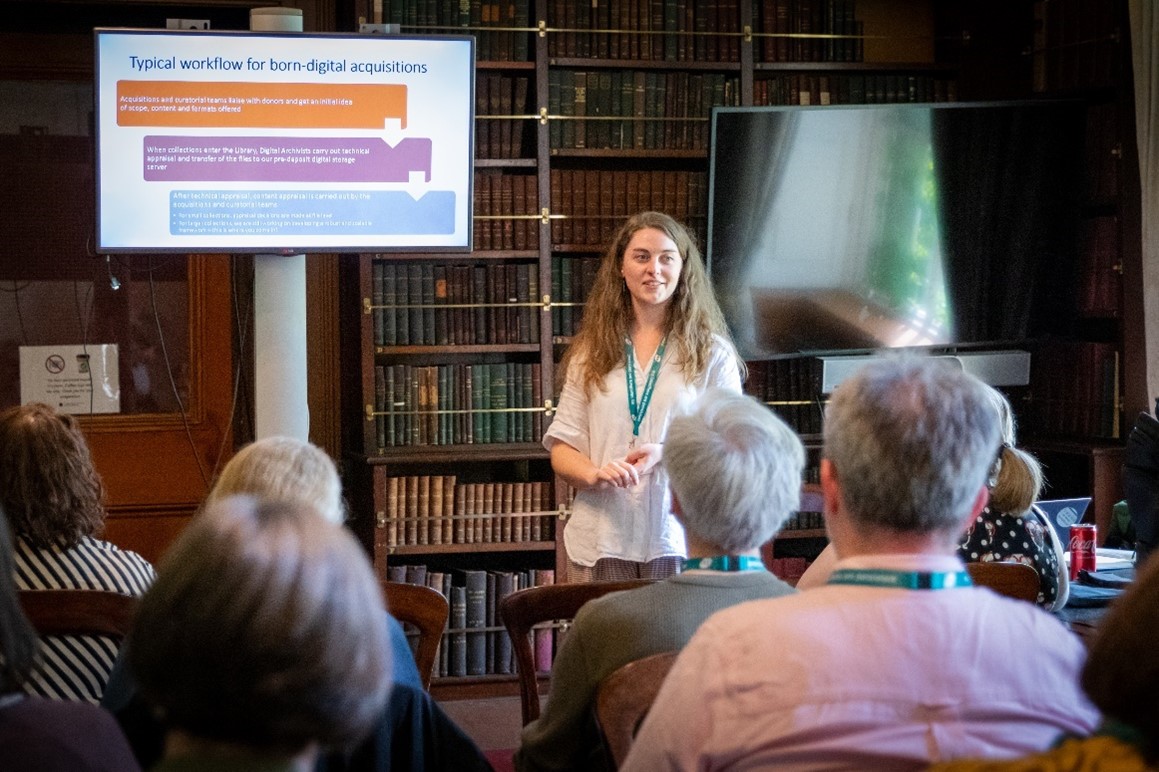
Presenting at the DPC Unconference in Dublin, Digital Preservation Coalition, CC BY-NC-SA 2.0
The DPC did a great job of making sure there was time and opportunity to talk informally and to gather socially too. On the first evening, I joined William Kilbride and Sarah Middleton from the DPC and other conference attendees for a delicious Italian dinner before completely fading from the jet lag! Another highlight was a visit to the Irish Traditional Music Archive where we got to see their impressive AV digitisation and recording suite as well as their offices, storage spaces and public reading room.
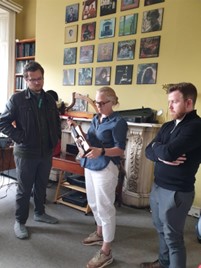
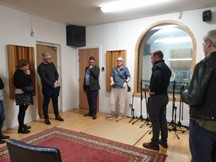
Reading room and recording studio at the Irish Traditional Music Archive
My next networking stop was in the Netherlands. First, I met up with Angela in Haarlem to chat careers, digital preservation, and travel, and she gifted me with a very tasty Dutch treat of stroopwaffles! I went on to Amsterdam where I met with Gaby Wijers at LI-MA to talk about all things time-based media art. It was great to get an insight into their specialist organisation and discuss some of the many challenges presented by their diverse collections.
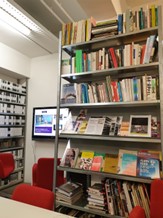
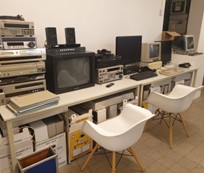
Reading room and equipment at LI-MA in Amsterdam
Tamara van Zwol from the Dutch Digital Heritage Network welcomed me to Beeld en Geluid in Hilversum and showed me around their wonderful exhibition spaces. I felt very grateful to Tamara for translating all the displays and games for me as they were only in Dutch! We also met with Martijn van der Vliet, Jasper Snoeren, and Amy Welten to talk about the work they were doing at Beeld en Geluid particularly around social media collecting and their preferred formats and preservation strategies for videos, games and time-based art.
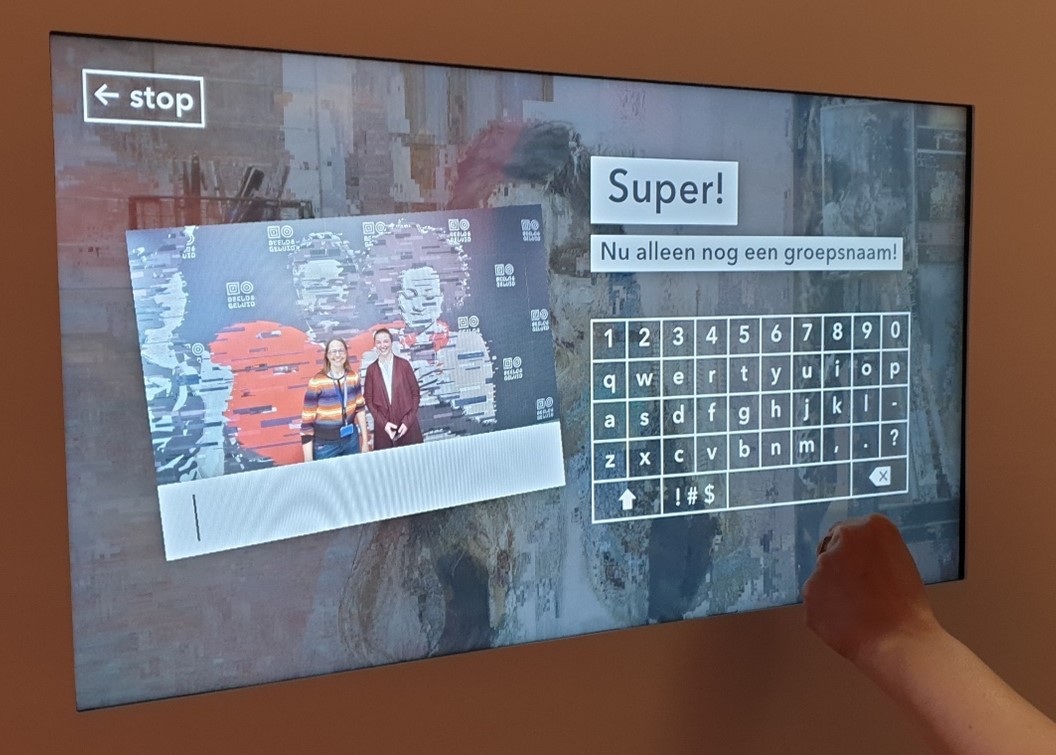
Tamara and I setting up our profile at the start of the exhibition experience at Beeld en Geluid
In the Hague, I visited both the Nationaal Archief and the National Library of the Netherlands (KBNL). It was wonderful to connect with colleagues and find that our organisations had a lot in common. At the Nationaal Archief, I spent the day with Lotte Wijsman, Remco van Veenendaal and Marin Rappard, where they shared details about their team and digital preservation program, including guidance they provide to government departments, their work to facilitate transfers, and capturing Dutch government social media and websites. I even got to try fresh new season pickled herring!
At the KBNL, I met Jeffrey van der Hoeven, Daniel Steinmeier and Richard Ligtenberg who shared some of their digital collections work, including their digital preservation policy, web archiving using Web Curator Tool (WCT), e-deposit, and KEEP (keep emulation environments portable). I was impressed by their public-facing “KB Datalab” space dedicated to making digital collections accessible within the reading rooms. At both institutions, I appreciated the wide-ranging conversations, including our shared fascination with the ephemerality of digital materials, how we got into digital preservation, and the challenges in how, what and why we should collect complex digital objects such as games and material from the web.
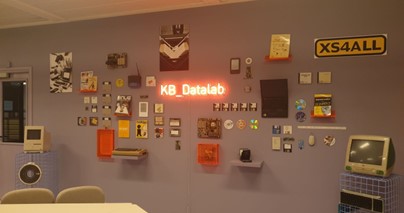
KBNL Datalab with an excellent display of obsolete technology
In the UK, I visited the Tate Stores to meet with the time-based media art team including Cheryl Lynn, Willa Ratz, Daniella Villamil, Jack McConchie, Benjamin Webb, and Chris King. They showed me around their TBMA collection stores which was absolutely fascinating – they keep so many pieces of technology, gadgetry, screens, players and cables! They shared the benefits of the team coming from diverse and complementary professional backgrounds (e.g. artists, technicians, AV specialists), their approach to conservation ethics and focus on robust conversations between curatorial, conservation and technical staff, and how their team handle artworks through their whole life cycle from acquisition through to display.
I also met Alexandra Everleigh, Stephanie Cornwell, Jonathan Cates, Ashley Ray, and Miten Mistry at the Wellcome Collection. They took me through their digital preservation and digitisation infrastructure, as well as what systems and tools they use to process digital collections. We chatted about appraisal and weeding of large digital collections and datasets and how best to provide access, including IIIF viewers.
And finally, in Edinburgh, I visited the National Galleries of Scotland and met with Kirsten Dunne and Kirstie Meehan. We discussed their great work to connect digital preservation needs across the time-based art collections and the gallery’s archives in order to collectively advocate for resource, equipment and staff to work on their digital holdings. I was impressed by their work to bridge historical departmental silos and build a network of supporters. With planning underway for a new collection storage building, I’m sure this groundwork will stand them in good stead.
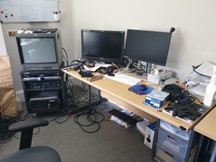
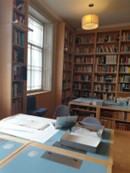
TBMA workstation and archives reading room at National Galleries Scotland Modern 1 and 2
I am so grateful to all the people I met on my trip – I really do feel like I was welcomed into the European digital preservation community with open arms. It was great to build the collegial connections across hemispheres and I am hoping to see many of these familiar faces on this side of the world for iPRES 2025 in Wellington, New Zealand!
